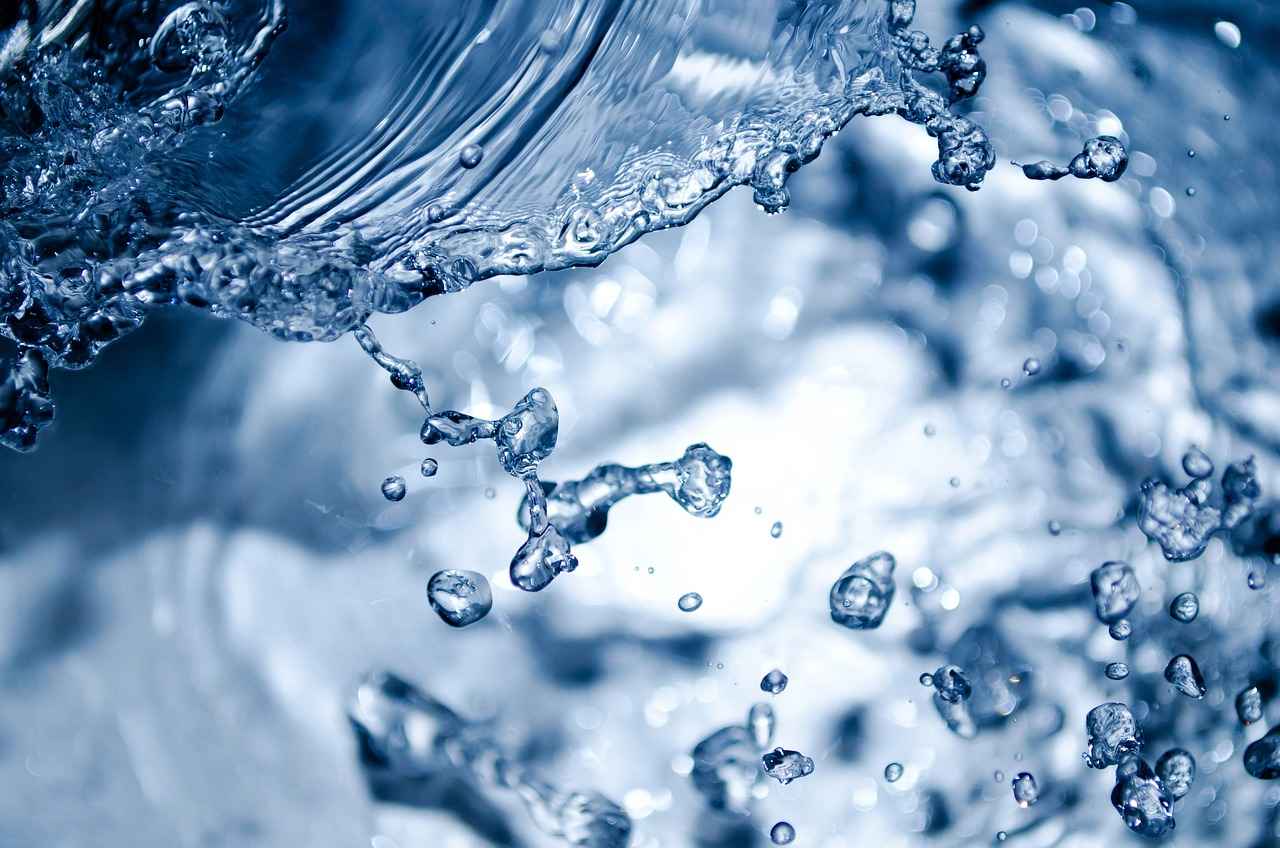This comprehensive guide explores the benefits, risks, and practical tips of water fasting, providing insights for those seeking health improvements and effective weight loss strategies.
What is Water Fasting?
Water fasting is defined as a period during which an individual abstains from all food and caloric beverages, consuming only water. This practice has historical roots, being utilized for religious and spiritual purposes, as well as for health benefits. Today, it has gained popularity as a method for detoxification and weight loss.
Health Benefits of Water Fasting
- Improved Metabolism: Research indicates that fasting can enhance metabolic rates, leading to more efficient calorie burning.
- Detoxification: Water fasting is believed to aid in the elimination of toxins from the body, promoting cellular repair and rejuvenation.
- Enhanced Mental Clarity: Many practitioners report improved focus and cognitive function during fasting periods.
Weight Loss and Water Fasting
One of the main motivations for individuals engaging in water fasting is weight loss. By creating a caloric deficit, the body begins to utilize stored fat for energy, leading to weight reduction. Studies have shown that intermittent fasting can be an effective approach to weight management.
How Water Fasting Affects Metabolism
During water fasting, the body undergoes significant metabolic changes. Initially, glycogen stores are depleted, prompting the body to shift to fat oxidation for energy. This metabolic shift can enhance fat loss, making fasting a powerful tool for weight control.
Detoxification Benefits
Water fasting promotes detoxification by allowing the digestive system to rest while the body focuses on eliminating waste products. This process can lead to improved overall health and vitality.
Potential Risks and Side Effects
While there are numerous benefits, it is essential to understand the potential risks associated with water fasting. Common side effects may include:
- Dizziness
- Fatigue
- Headaches
Individuals with certain health conditions, such as diabetes or eating disorders, should consult a healthcare professional before engaging in fasting.
How to Prepare for Water Fasting
Preparation is crucial for a successful water fast. Here are some practical tips:
- Mental Preparation: Set clear intentions and goals for your fasting period.
- Physical Preparation: Gradually reduce food intake and eliminate processed foods leading up to the fast.
Choosing the Right Duration
Water fasts can vary in duration, from 24 hours to several days. It is important to consider personal health status and goals when deciding on the length of the fast.
Hydration and Electrolyte Balance
Maintaining proper hydration is vital during fasting. Drinking adequate water and being mindful of electrolyte levels can help avoid complications.
Breaking a Water Fast Safely
How you conclude your water fast is just as important as the fast itself. Gradually reintroducing foods, starting with easily digestible options like fruits or broths, can prevent digestive distress.
Foods to Reintroduce Gradually
After completing a fast, it is advisable to reintroduce foods slowly. Begin with:
- Broths
- Fruits
- Vegetables
Signs You Should Stop Fasting
Listening to your body is crucial. If you experience severe symptoms such as fainting, extreme weakness, or confusion, it is essential to break the fast immediately.
Who Should Avoid Water Fasting?
Water fasting may not be suitable for everyone. Pregnant women, individuals with certain medical conditions, or those with a history of eating disorders should seek personalized health advice before attempting fasting.

What is Water Fasting?
Water fasting is a practice that involves abstaining from all food and caloric beverages, consuming only water for a designated period. This method of fasting has gained popularity in recent years, but its roots can be traced back to ancient civilizations, where it was often linked to spiritual and religious practices. In this section, we will explore the definition, purpose, and historical significance of water fasting, as well as its relevance in contemporary health discussions.
At its core, water fasting is a form of intermittent fasting that encourages individuals to refrain from eating solid foods and caloric drinks while allowing unlimited intake of water. The primary objective of this fasting method is to promote a state of ketosis, where the body shifts from using glucose for energy to utilizing stored fat. This metabolic shift is believed to offer a range of health benefits, including weight loss, improved mental clarity, and enhanced cellular repair.
Historically, water fasting has been practiced for centuries across various cultures. Ancient Greeks, for instance, utilized fasting as a means of detoxification and purification. In many religious traditions, fasting is seen as a way to achieve spiritual enlightenment and self-discipline. Today, the modern interpretation of water fasting often emphasizes its potential health benefits, supported by emerging scientific research.
In contemporary society, water fasting has garnered attention for its role in weight management and metabolic health. Many individuals turn to this fasting method as a way to jumpstart their weight loss journey or as part of a broader detoxification regimen. The simplicity of water fasting—requiring no complex meal planning or preparation—makes it an appealing option for those seeking to improve their health and well-being.
Moreover, numerous studies have suggested that water fasting may lead to significant health improvements. For instance, research indicates that fasting can enhance insulin sensitivity, reduce inflammation, and promote autophagy, a process where the body cleans out damaged cells and regenerates new ones. These findings underscore the potential of water fasting not only as a weight loss strategy but also as a means of fostering overall health.
It is important to note, however, that while water fasting can offer various benefits, it may not be suitable for everyone. Individuals with certain health conditions, such as diabetes or eating disorders, should consult with a healthcare professional before embarking on a water fast. Additionally, understanding the risks associated with prolonged fasting is crucial to ensure a safe and effective experience.
In summary, water fasting is a time-honored practice that has evolved into a modern health trend. By abstaining from food and caloric beverages, individuals aim to achieve numerous health benefits, including weight loss and improved metabolic function. As research continues to shed light on the effects of fasting, it remains essential for individuals to approach this practice with informed caution and awareness of their personal health needs.

Health Benefits of Water Fasting
Water fasting is gaining popularity as a holistic approach to health and wellness. This practice, which involves consuming only water for a specified period, is believed to offer a myriad of health benefits. In this section, we will explore the various advantages of water fasting, supported by scientific research and expert opinions.
One of the most notable benefits of water fasting is its ability to enhance metabolism. During fasting, the body undergoes significant metabolic changes. According to a study published in the journal Cell Metabolism, fasting can increase the metabolic rate by up to 14%, promoting fat burning and energy utilization. This metabolic boost is crucial for individuals aiming to lose weight or improve their overall health.
Moreover, water fasting is recognized for its powerful detoxification effects. When the body is in a fasting state, it initiates a process called autophagy, where damaged cells are broken down and recycled. This process not only eliminates toxins but also promotes cellular repair and regeneration, which can lead to improved overall health. A review in the journal Nature Reviews Molecular Cell Biology highlights how autophagy plays a vital role in maintaining cellular health and function.
Additionally, water fasting may lead to improved insulin sensitivity. Research indicates that fasting can lower insulin levels, making it easier for the body to manage blood sugar levels. This is particularly beneficial for individuals at risk of developing type 2 diabetes. A study published in the journal Diabetes Care found that participants who engaged in intermittent fasting experienced significant improvements in insulin sensitivity.
Another advantage of water fasting is its potential to reduce inflammation in the body. Chronic inflammation is linked to various health issues, including heart disease and autoimmune disorders. Research published in the Journal of Nutrition suggests that fasting can decrease markers of inflammation, promoting better health and longevity.
Furthermore, water fasting can improve mental clarity and cognitive function. Many individuals report enhanced focus and concentration during fasting periods. This phenomenon may be attributed to the increased production of brain-derived neurotrophic factor (BDNF), a protein that supports brain health. A study in the journal Neuroscience Letters indicates that fasting can elevate BDNF levels, which may enhance learning and memory.
Lastly, water fasting is often associated with improved spiritual well-being. Many people use fasting as a time for reflection and mindfulness, allowing them to connect with their inner selves. This aspect of fasting can lead to reduced stress and anxiety, contributing to overall mental health.
In summary, the health benefits of water fasting are extensive and varied. From enhancing metabolism and detoxification to improving mental clarity and spiritual well-being, this practice offers a holistic approach to health. However, it is essential to approach water fasting with caution and seek guidance from healthcare professionals, especially for those with underlying health conditions.
Weight Loss and Water Fasting
Water fasting has gained significant popularity as a method for weight loss. The fundamental principle behind this practice is the creation of a caloric deficit, which occurs when the body consumes fewer calories than it expends. This section will explore how water fasting facilitates weight loss by enhancing fat burning and metabolic efficiency.
During a water fast, individuals abstain from all food and caloric beverages, consuming only water. This drastic reduction in caloric intake forces the body to utilize its stored energy reserves. Initially, the body relies on glycogen stores found in the liver and muscles. Once these stores are depleted, which typically occurs within the first 24 hours, the body shifts to burning fat for energy through a process known as ketosis.
In ketosis, the liver converts fatty acids into ketones, which serve as an alternative energy source. This shift not only promotes fat burning but also helps to stabilize blood sugar levels, reducing cravings and hunger pangs. As a result, many individuals find it easier to adhere to a fasting regimen, leading to more effective weight management.
Moreover, water fasting can lead to a significant reduction in insulin levels. Lower insulin levels facilitate fat burning because insulin is a hormone that signals the body to store fat. When insulin levels are low, the body is more likely to utilize fat as an energy source, further promoting weight loss.
Additionally, water fasting may enhance metabolic rate in the short term. Research indicates that short-term fasting can lead to an increase in norepinephrine, a hormone that boosts metabolism and encourages fat breakdown. This metabolic boost can aid individuals in their weight loss journey, particularly when combined with a healthy post-fasting diet.
However, it is essential to approach water fasting with caution. While it can be effective for weight loss, it is not suitable for everyone. Individuals with certain health conditions, such as diabetes or eating disorders, should consult healthcare professionals before embarking on a fasting regimen.
In conclusion, water fasting can be a powerful tool for weight loss, primarily due to its ability to create a caloric deficit, promote fat burning, and enhance metabolic rates. By understanding the physiological changes that occur during fasting, individuals can make informed decisions about whether this method aligns with their health and weight management goals.
How Water Fasting Affects Metabolism
Understanding the metabolic changes that occur during water fasting is essential for anyone considering this practice. Water fasting, which involves abstaining from all food and caloric beverages, prompts significant physiological responses that can alter metabolic rate and energy utilization. This section delves into the intricate mechanisms by which fasting influences metabolism, providing insights into the body’s adaptive processes.
Initially, when the body enters a fasting state, it begins to deplete its glycogen stores, which are the primary source of energy derived from carbohydrates. Glycogen is stored in the liver and muscles and is readily converted into glucose for energy. As these stores diminish—typically within the first 24 hours of fasting—the body shifts its energy source from glucose to fat.
This transition initiates a process called ketosis, where the liver converts fatty acids into ketones. Ketones serve as an alternative energy source for many cells, including brain cells, which can significantly enhance mental clarity and focus during fasting. The shift to fat metabolism not only aids in weight loss but also plays a crucial role in improving overall metabolic health.
Moreover, fasting has been shown to influence hormonal levels that regulate metabolism. For instance, insulin levels drop significantly during fasting, promoting fat breakdown and reducing fat storage. Lower insulin levels also enhance the body’s sensitivity to this hormone, which can lead to improved metabolic function over time.
Another important hormonal change is the increase in human growth hormone (HGH) levels, which can rise by as much as five times during fasting. HGH is vital for fat loss and muscle preservation, making it a beneficial factor for those looking to maintain lean muscle mass while fasting.
Additionally, fasting has been linked to increased levels of norepinephrine, a hormone that boosts metabolic rate by enhancing fat burning. This combination of hormonal changes creates a favorable environment for weight loss and metabolic enhancement, making water fasting an attractive option for many individuals.
However, it is crucial to approach water fasting with caution. While the metabolic benefits can be significant, they can vary based on individual health conditions, duration of the fast, and overall lifestyle. It is advisable to consult with a healthcare professional before starting a fasting regimen, particularly for individuals with pre-existing health issues or those taking medications.
In summary, the metabolic changes that occur during water fasting are profound and multifaceted. By understanding how fasting influences metabolic rate and energy utilization, individuals can make informed decisions about their health and wellness journey. Embracing these changes can lead to improved metabolic health, weight management, and overall well-being.
Detoxification Benefits
Water fasting is often recognized for its detoxification effects, which play a crucial role in promoting overall health. By abstaining from food and caloric beverages, the body enters a state that encourages the elimination of toxins and fosters cellular repair. This section will delve into the mechanisms of detoxification during water fasting, highlighting its significance for physical well-being.
During a water fast, the body initiates several processes aimed at cleansing and rejuvenating itself. One of the primary mechanisms is the activation of autophagy, a natural cellular process where the body breaks down and recycles damaged cells and proteins. This not only helps in removing toxins but also promotes the regeneration of healthy cells. Research has shown that autophagy can enhance cellular function and longevity, making it a vital aspect of fasting.
Moreover, fasting allows the liver, the body’s primary detoxification organ, to function more efficiently. When food intake is reduced, the liver can focus on processing and eliminating accumulated toxins rather than metabolizing nutrients. This shift can lead to improved liver health and function, ultimately benefiting the entire body.
Another important benefit of water fasting is its impact on the immune system. Studies have indicated that fasting can lead to a reduction in inflammation, which is often linked to chronic diseases. By reducing inflammatory markers, the body can better defend itself against illnesses, enhancing the overall immune response.
In addition to these physiological benefits, water fasting can also promote mental clarity and emotional well-being. Many individuals report experiencing heightened focus and a sense of calm during fasting periods. This mental clarity may stem from the body’s shift into a state of ketosis, where it begins to utilize fat for energy instead of glucose. Ketones, produced during this process, have been shown to have neuroprotective effects, potentially benefiting brain health.
Furthermore, the psychological aspect of detoxification during a water fast should not be overlooked. The act of fasting can provide individuals with a renewed sense of control over their eating habits and lifestyle choices. This mental reset can lead to healthier long-term habits, further supporting the detoxification process.
It is essential to note that while water fasting offers numerous detoxification benefits, it is not suitable for everyone. Individuals with certain health conditions, such as diabetes or eating disorders, should consult with a healthcare professional before embarking on a fasting regimen. Additionally, proper preparation and breaking the fast correctly are crucial to maximizing the health benefits while minimizing potential risks.
In conclusion, water fasting serves as a powerful tool for detoxification, promoting cellular repair and enhancing overall health. By understanding the mechanisms involved and approaching fasting with care and knowledge, individuals can harness its benefits effectively.
Potential Risks and Side Effects
While water fasting can offer various health benefits, it is essential to recognize that it also comes with potential risks and side effects. Understanding these risks is crucial for anyone considering this practice, as informed decision-making can significantly impact health outcomes.
One of the most common side effects associated with water fasting is dehydration. Although the primary intake during a water fast is water, individuals may not consume enough to meet their hydration needs, especially if they are physically active. Signs of dehydration can include dizziness, fatigue, and headaches, which can severely affect overall well-being.
Another significant concern is the potential for nutritional deficiencies. Extended periods of fasting can lead to a lack of essential vitamins and minerals. This deficiency can cause various health issues, including weakened immunity, muscle loss, and impaired cognitive function. It is vital to consider the duration of the fast and ensure that any fasting regimen includes adequate preparation and post-fasting recovery.
Additionally, water fasting can lead to electrolyte imbalances. Electrolytes are crucial for maintaining various bodily functions, including heart rhythm and muscle contraction. Prolonged fasting without proper management of electrolyte levels can lead to serious complications, such as heart palpitations or muscle cramps. Individuals with underlying health conditions, particularly those affecting the kidneys or heart, should approach water fasting with caution.
For some, the psychological effects of fasting can also pose challenges. Many individuals may experience mood swings, irritability, or increased stress levels during fasting periods. These emotional fluctuations can be attributed to changes in blood sugar levels and the body’s adaptation to fasting. It is essential to monitor mental health during this process and seek support if necessary.
Furthermore, water fasting may not be suitable for everyone. Certain populations, such as pregnant or breastfeeding women, individuals with eating disorders, or those with chronic health conditions, should avoid fasting unless under strict medical supervision. It is crucial to consult with a healthcare professional before embarking on a water fast to ensure it aligns with individual health needs.
In summary, while water fasting can provide various health benefits, it is imperative to be aware of the potential risks and side effects. Proper preparation, monitoring, and post-fasting recovery are essential components to mitigate these risks. By making informed decisions and consulting with healthcare professionals, individuals can navigate the complexities of water fasting safely and effectively.

How to Prepare for Water Fasting
Preparation is key to a successful water fast. Taking the time to mentally and physically prepare can significantly enhance your fasting experience. Here are some practical tips to help you get ready:
- Set Clear Goals: Before starting your fast, define your objectives. Are you aiming for weight loss, detoxification, or improved mental clarity? Having clear goals will help you stay focused and motivated.
- Educate Yourself: Understanding the process of water fasting is essential. Research the benefits and potential risks associated with fasting. Knowledge empowers you to make informed decisions and manage expectations.
- Gradually Reduce Food Intake: In the days leading up to your fast, consider tapering off your food intake. Start by eliminating processed foods, sugars, and heavy meals. This gradual reduction can help your body adjust more easily.
- Stay Hydrated: Ensure you are well-hydrated before starting your fast. Drinking plenty of water in the days leading up to your fast can help prepare your body for the upcoming changes.
- Prepare Mentally: Fasting can be as much a mental challenge as a physical one. Engage in mindfulness practices, such as meditation or yoga, to strengthen your mental resilience. Visualize your success and remind yourself of your goals.
- Inform Your Circle: Let family and friends know about your fasting plans. This support network can be invaluable, providing encouragement and understanding when challenges arise.
- Plan for Rest: Fasting can be taxing on your body, especially in the initial days. Schedule time for rest and relaxation to help your body adapt to the changes.
By taking these steps, you can ensure a smoother and more successful water fasting experience. Remember, preparation is not just about the physical aspects; it also involves mental readiness. A well-prepared individual is more likely to achieve their fasting goals and enjoy the numerous health benefits that come with water fasting.
In summary, preparation is crucial for anyone considering a water fast. By setting clear goals, educating yourself, and gradually adjusting your diet, you can pave the way for a successful fasting journey. Embrace the process, stay committed, and listen to your body throughout the experience.
Choosing the Right Duration
Choosing the right duration for your water fast is a critical factor that can significantly influence the outcomes you achieve. The duration of a fast can vary widely based on individual goals, health status, and previous fasting experience. This section will explore common fasting durations, the factors to consider, and how to tailor your fasting period to align with your personal objectives.
Common fasting durations typically range from 24 hours to 72 hours, with some individuals opting for extended fasts lasting a week or longer. Each duration has its own set of benefits and challenges:
| Fasting Duration | Benefits | Considerations |
|---|---|---|
| 24 Hours | Improved insulin sensitivity, initiation of autophagy. | May be easier for beginners; hunger pangs can be challenging. |
| 48 Hours | Enhanced fat burning, deeper detoxification. | Requires mental preparation; hydration is crucial. |
| 72 Hours | Significant metabolic benefits, reset of immune function. | Higher risk of side effects; should be approached with caution. |
| Extended Fasts (1 Week or More) | Profound health benefits, including cellular regeneration. | Requires medical supervision; not suitable for everyone. |
When determining the length of your water fast, consider the following factors:
- Personal Goals: Are you aiming for weight loss, detoxification, or spiritual reasons? Your goal will dictate the optimal duration.
- Health Status: Individuals with pre-existing health conditions or those on medication should consult a healthcare professional before embarking on a fast.
- Previous Fasting Experience: If you are new to fasting, starting with shorter durations may be more manageable.
- Support System: Having a support network can make a significant difference, especially for longer fasts.
It’s also essential to listen to your body throughout the fasting process. Signs of fatigue, dizziness, or excessive hunger may indicate that it’s time to end your fast. Always prioritize your health and well-being over achieving specific goals.
In summary, the duration of your water fast should be a well-considered decision based on your unique circumstances. By evaluating your goals, health status, and experience level, you can select a fasting period that aligns with your aspirations while ensuring a safe and effective experience.
Hydration and Electrolyte Balance
During water fasting, maintaining proper hydration and electrolyte balance is essential for overall health and well-being. As the body undergoes metabolic changes, the need for adequate water intake becomes increasingly important. This section explores the significance of hydration and offers practical strategies for managing electrolyte levels effectively.
Water is the cornerstone of life, and during fasting, it plays a crucial role in various bodily functions. When food intake is restricted, the body relies on water to facilitate digestion, nutrient absorption, and metabolic processes. Insufficient hydration can lead to dehydration, which may cause symptoms such as dizziness, fatigue, and headaches. Therefore, it is vital to drink enough water throughout the fasting period.
Electrolytes, including sodium, potassium, magnesium, and calcium, are minerals that help regulate various physiological functions, such as muscle contractions and nerve signaling. During fasting, electrolyte levels can fluctuate, potentially leading to imbalances that affect physical performance and cognitive function. To mitigate these risks, consider the following strategies:
- Monitor Water Intake: Aim to consume at least 2 to 3 liters of water daily, adjusting based on activity level and environmental conditions.
- Use Electrolyte Supplements: Consider adding electrolyte powders or tablets to your water to replenish lost minerals, especially during extended fasts.
- Incorporate Bone Broth: If permissible, consuming bone broth can provide hydration along with essential electrolytes, offering a nutritious option while fasting.
- Listen to Your Body: Pay attention to signs of dehydration or electrolyte imbalance, such as muscle cramps or unusual fatigue, and adjust your intake accordingly.
It is important to recognize that individual hydration needs may vary based on factors such as age, gender, and physical activity. Therefore, tailoring your hydration strategy to your unique needs can enhance your fasting experience. Additionally, staying aware of your body’s signals is crucial; if you feel unwell or experience severe symptoms, it may be necessary to break your fast.
In summary, effective hydration and electrolyte management are fundamental aspects of successful water fasting. By prioritizing water intake and employing strategies to maintain electrolyte balance, individuals can support their health and improve their fasting experience. This proactive approach not only enhances physical performance but also contributes to overall well-being during the fasting period.

Breaking a Water Fast Safely
is crucial for maintaining the health benefits you’ve gained during the fasting period. How you end your fast can significantly influence your digestive health and overall well-being. In this section, we will explore safe practices for breaking a fast, ensuring a smooth transition back to regular eating.
After an extended period without food, your digestive system becomes sensitive. Therefore, it is essential to approach the reintroduction of food with care. Here are some important practices to consider:
- Start Slow: Begin with small portions of easily digestible foods. This helps your digestive system gradually adjust to processing food again.
- Choose Nutrient-Dense Foods: Opt for whole, unprocessed foods such as fruits, vegetables, and broths. These will provide essential nutrients without overwhelming your system.
- Avoid Heavy Meals: Steer clear of high-fat or high-sugar foods initially, as they can lead to digestive distress and discomfort.
- Stay Hydrated: Continue to drink plenty of water as you break your fast. This aids in digestion and helps your body adjust.
As you begin to reintroduce solid foods, consider the following guidelines:
| Day | Suggested Foods |
|---|---|
| 1 | Bone broth, diluted fruit juices |
| 2 | Steamed vegetables, soft fruits |
| 3 | Whole grains, lean proteins |
It is also important to listen to your body. If you experience any discomfort or adverse reactions, it may be a sign that you need to slow down the reintroduction process. Here are some signs to watch for:
- Nausea or Vomiting: If you feel nauseous after eating, it may indicate that your stomach is not ready for solid food.
- Abdominal Pain: Any significant pain should prompt you to stop eating and consult a healthcare professional.
- Fatigue or Weakness: Persistent fatigue can signal that your body is struggling to adapt.
Overall, breaking a water fast requires mindfulness and patience. By following these practices, you can minimize the risk of digestive distress and ensure a positive transition back to regular eating habits. Remember, the goal is to nourish your body and maintain the health benefits achieved during your fast.
Foods to Reintroduce Gradually
After completing a water fast, it is crucial to reintroduce food carefully to avoid overwhelming your digestive system. The body has been in a state of rest, and sudden changes can lead to discomfort or digestive issues. This section provides a detailed guide on suitable foods and meal plans to help ease back into eating.
When breaking a fast, it is important to start with gentle foods that are easy to digest. Here are some recommended options:
- Broths and Soups: Start with clear vegetable or bone broth. These provide hydration and nutrients without being heavy on the stomach.
- Fruits: Fresh fruits like watermelon, oranges, or apples are excellent choices. They contain natural sugars and water, helping to rehydrate the body.
- Steamed Vegetables: Soft, steamed vegetables such as zucchini, carrots, or spinach can be reintroduced gradually. They are rich in vitamins and easy to digest.
- Yogurt: Plain yogurt with probiotics can help restore gut flora. It is creamy and gentle on the stomach, making it a great option after fasting.
- Rice or Quinoa: These grains are light and can provide a good source of carbohydrates. Start with small portions to see how your body reacts.
As you progress, consider incorporating more substantial foods:
- Lean Proteins: Foods like chicken or fish can be added after the initial reintroduction phase. They provide essential amino acids and help rebuild muscle.
- Whole Grains: Once your body adjusts, whole grains like oats or whole grain bread can be introduced for added fiber and energy.
- Nuts and Seeds: These are nutrient-dense but should be consumed in moderation. They can provide healthy fats and protein.
It is advisable to eat small, frequent meals rather than large portions. This approach helps the digestive system gradually adapt to processing food again. Additionally, pay attention to your body’s signals. If you experience discomfort or bloating, consider reverting to simpler foods for a few more days.
Here is a sample meal plan for the first few days after breaking a fast:
| Day | Meals |
|---|---|
| 1 | Clear broth, followed by pureed soup and fresh fruit. |
| 2 | Steamed vegetables, yogurt, and small portions of rice. |
| 3 | Lean protein (chicken or fish), whole grains, and nuts. |
In summary, taking a gradual approach to reintroducing food after a water fast is essential for ensuring a smooth transition. By starting with gentle, easily digestible foods and progressively incorporating more complex meals, you can support your digestive health and overall well-being.
Signs You Should Stop Fasting
Recognizing when to end a fast is a vital aspect of maintaining your health and well-being during water fasting. While fasting can offer numerous benefits, it is essential to listen to your body and be aware of specific warning signs that indicate it may be time to break your fast. Ignoring these signs can lead to adverse health effects and undermine the positive outcomes of your fasting experience.
Here are some critical signs that suggest you should stop fasting immediately:
- Severe Dizziness or Lightheadedness: If you experience intense dizziness or feel faint, it may indicate that your body is not receiving enough nutrients or energy. This is a clear signal to break your fast.
- Persistent Nausea: While some mild discomfort can be expected during fasting, ongoing nausea can be a sign of dehydration or electrolyte imbalance. It’s crucial to listen to your body and reintroduce food if nausea persists.
- Extreme Fatigue: Feeling excessively tired or lethargic can indicate that your body is struggling to function without food. If you find it challenging to perform daily tasks or feel unusually weak, it’s time to consider ending your fast.
- Heart Palpitations: Experiencing irregular heartbeats or palpitations can be a serious concern. This symptom may suggest that your body is under stress due to prolonged fasting, and you should break your fast immediately.
- Severe Hunger Pangs: While some hunger is expected, extreme hunger that causes discomfort may indicate that your body needs nourishment. If hunger becomes unbearable, it’s best to listen to your body.
- Changes in Mental Clarity: If you notice significant changes in your focus or mental clarity, such as confusion or difficulty concentrating, it may be a sign that your brain is not receiving adequate energy. This can be a critical warning sign to stop fasting.
In addition to these physical signs, it’s also essential to consider your emotional and psychological state during fasting. If you notice increased irritability, anxiety, or mood swings, these could also indicate that your body is signaling the need for food.
To ensure a safe and healthy fasting experience, it is crucial to stay hydrated and monitor your body’s responses closely. If any of these warning signs arise, do not hesitate to break your fast and consult with a healthcare professional if you have concerns about your health. Remember, fasting should be a beneficial practice, and prioritizing your well-being is paramount.

Who Should Avoid Water Fasting?
Water fasting can offer numerous health benefits; however, it is not a one-size-fits-all approach. Certain individuals and specific health conditions can make fasting dangerous or ineffective. Understanding who should avoid water fasting is crucial for ensuring safety and well-being.
First and foremost, individuals with diabetes should exercise caution. Water fasting can lead to dangerous fluctuations in blood sugar levels. For those on insulin or other medications to manage diabetes, fasting without medical supervision can result in severe hypoglycemia (low blood sugar), which can be life-threatening.
Another group that should avoid water fasting includes individuals with a history of eating disorders. Fasting can trigger unhealthy behaviors and thoughts around food, potentially exacerbating conditions such as anorexia or bulimia. It is vital for those recovering from such disorders to seek guidance from healthcare professionals before considering any form of fasting.
Pregnant or breastfeeding women are also advised against water fasting. During pregnancy, both the mother and the developing fetus require a steady supply of nutrients. Similarly, breastfeeding mothers need to maintain a balanced diet to ensure adequate milk production and nutritional content for their infants.
Individuals with certain chronic health conditions, such as heart disease or kidney problems, should consult with a healthcare provider before attempting water fasting. Fasting can put additional stress on the body, which may not be suitable for those with compromised health. For example, dehydration can exacerbate heart conditions, while kidney patients may struggle to maintain electrolyte balance during a fast.
Furthermore, older adults may face risks associated with water fasting. As we age, our bodies may not handle fasting as efficiently, leading to dehydration or nutrient deficiencies. It is essential for older individuals to consider their overall health and consult with a healthcare professional before starting a fast.
People taking certain medications that require food intake to avoid side effects should also refrain from water fasting. Medications for conditions like epilepsy or those that affect blood pressure can interact negatively with fasting, leading to adverse effects.
In addition to these specific populations, anyone considering water fasting should take into account their overall health status. Those who feel unwell or are experiencing significant stress, illness, or fatigue should avoid fasting until they are in a better state of health. It is always advisable to listen to your body and prioritize your well-being.
In conclusion, while water fasting may be beneficial for some, it is not suitable for everyone. It is imperative to seek personalized health advice from a healthcare professional before embarking on a fasting journey. Understanding the risks and contraindications can help individuals make informed decisions that prioritize their health and safety.
Frequently Asked Questions
- What is the main purpose of water fasting?
The primary purpose of water fasting is to allow the body to detoxify and promote weight loss by consuming only water. This method encourages the body to enter a state of ketosis, where it burns fat for energy instead of carbohydrates.
- How long should I fast for optimal results?
The ideal duration for water fasting varies from person to person. Beginners might start with a 24-hour fast, while more experienced individuals may choose to fast for 3 to 7 days. It’s essential to listen to your body and consult a healthcare professional if unsure.
- Are there any risks associated with water fasting?
Yes, while water fasting has benefits, it also carries risks, especially for certain individuals. Potential side effects include dizziness, fatigue, and nutrient deficiencies. It’s crucial to consult a doctor before starting, especially if you have underlying health conditions.
- How do I safely break a water fast?
Breaking a water fast should be done gradually. Start with light, easily digestible foods like broths, juices, or fruits. Avoid heavy meals immediately after fasting to prevent digestive distress.
- Who should avoid water fasting?
Individuals with certain health conditions, such as diabetes, eating disorders, or pregnant women, should avoid water fasting. Always seek personalized advice from a healthcare provider before attempting any fasting regimen.












